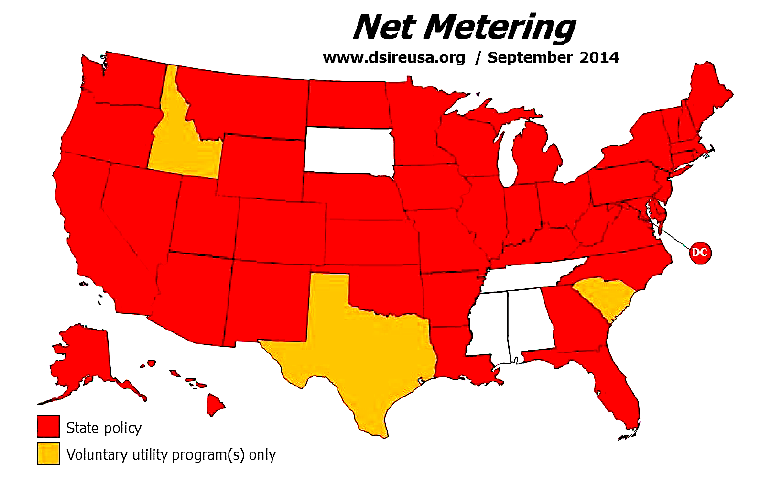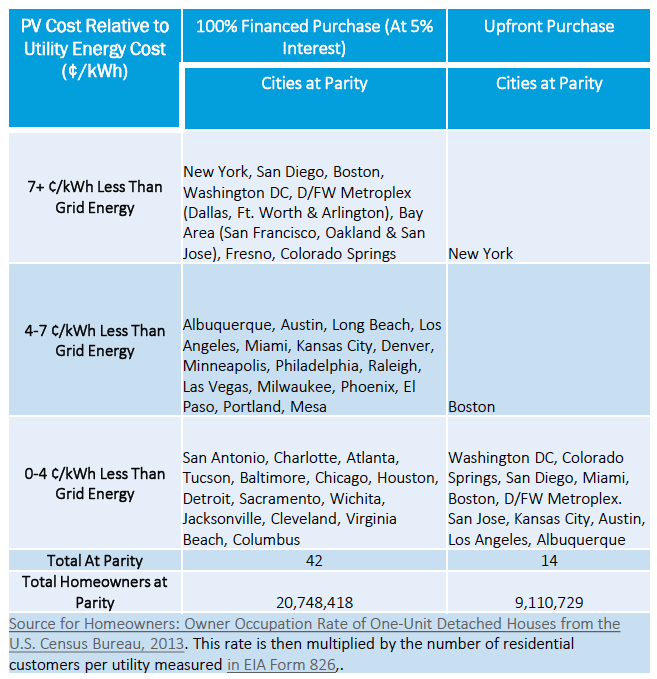We’re hearing some more good news about residential solar costs. Experts expect a home solar system to cost a whopping 40% less within the next three years. Combined with the continuation of major solar rebates and tax credits, this makes 2015 a very opportune time to invest in the owner-friendliest option—and the easiest to install—of all the active renewable technologies.
The hardware costs of solar are no longer driving price reductions, as the Lawrence Berkeley National Lab pointed out in its 1998-2013 analysis. We felt those big hardware savings in the past as the industry zoomed forward with cell technology breakthroughs, new panel arrays, and advances in inverter systems. However, recent National Renewable Energy Laboratory survey found that soft residential solar costs are now responsible for over half (64%) of the cost of home-scale photovoltaic systems.
According to the Department of Energy’s SunShot Initiative, we can break these soft residential solar costs down into customer acquisition at the company (marketing, site assessments, etc.), financing (interest or third-party developer markup), installation labor, and permitting and inspection (including unanticipated delays).
The department aims to bring residential solar costs down to 6 cents per kilowatt-hour by the year 2020. (You can see detailed analysis by Jim Kennerly, Policy and Regulatory Analyst at NC Sustainable Energy Association and coauthor of the new SunShot-funded Going Solar in America report, in a slideshow here.)
The more the soft costs fall, the less expensive home solar installations will become. We’re still in the shakedown period for utilities and regulators to work out the rules. As solar continues its explosive growth, experts expect a push from local governments to aid in the process through measures like streamlining and clearing up regulations, outreach, and lender interaction. The bang from utilities will come in the form of providing net metering (check out the map of state policies!), arranging community solar, and coordinating better with customers and municipal officials. Kennerly’s analysis shows that in most areas (46 of 50 cities studied), solar energy investments are becoming even more profitable than stock market buys.
 You may also find useful this Energy Department analysis of cities where solar (both financed and purchased upfront) is at parity with utility electric rates. These are pre-2014 numbers; updating the chart would likely put many other locations onto it.
You may also find useful this Energy Department analysis of cities where solar (both financed and purchased upfront) is at parity with utility electric rates. These are pre-2014 numbers; updating the chart would likely put many other locations onto it.
Statistics published this year by the International Renewable Energy Agency, the CEO of Saudi Arabia’s ACWE power company, and analysts from Deutsche Bank all see soft costs dropping significantly over the next two years. The investment bank makes the following points about the solar trend.
Panels will fall in price to 50 cents/watt.
The total cost reduction will not come from polysilicon price reductions, because silicon costs have already dropped to become one of the smaller elements of solar panel manufacture.
Inverter and racking costs are declining through component cost reduction, next-generation improvements, and production efficiencies (on the manufacturing side), and ongoing price competition among companies new to the field.
Installation costs will fall by one-third in the US because so many installations are occurring that the price comes down by volume alone. Also, every year brings more experienced installers using better tools and techniques.
Sales and customer acquisition costs will also drop from more financing opportunities and power purchase agreements becoming available and increased use of automated online systems, Cloud technology, and smartphone GPS, camera, and Internet links.
Leave a Reply
Solar Savings Calculator
Get the facts. Find out exactly how much solar will save you, including which Tax and Financial programs you qualify for!








